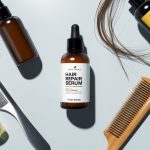Best Beauty Supplements for Radiant Skin, Hair, and Nails: What Really Works
The pursuit of radiant skin, vibrant hair, and strong nails is a cornerstone of modern beauty and wellness routines. While many try endless creams and serums, a growing number are turning to beauty supplements that work from the inside out.
Key supplements like biotin, collagen, vitamin C, and omega-3s have shown promise in supporting not just appearance, but overall health as well. These supplements are popular choices for those seeking reliable results.
Choosing the right supplements can help address concerns like dryness, breakage, or dullness. Products with scientifically supported ingredients are now widely available, ranging from targeted vitamins to collagen powders and blends designed to promote beauty from within.
Readers curious about the evidence behind popular choices can discover what actually works for healthier skin, hair, and nails by exploring the benefits backed by both research and real-world use. Trusted overviews from sources like CNET discuss the best vitamins for hair, skin, and nails.
Understanding the Link Between Nutrition and Beauty

Nutrition and beauty are closely connected because the nutrients people consume play a direct role in the condition of their skin, hair, and nails. Scientific evidence shows that both deficiencies and excesses in certain nutrients can be reflected in a person’s appearance.
Essential Nutrients for Skin, Hair, and Nails
Skin, hair, and nails require a combination of vitamins, minerals, and macronutrients for optimal health. Vitamin A supports skin cell turnover and helps maintain a healthy skin barrier.
Biotin and vitamin B complex are well-known for promoting stronger hair and nails. Vitamin E and vitamin C provide antioxidant protection, supporting collagen production and helping to repair environmental damage.
Minerals like zinc and iron are vital for growth and repair, while omega-3 fatty acids contribute to hydration and elasticity. Sufficient protein is also necessary, as hair and nails are primarily made of keratin, a structural protein.
Without these essential nutrients, individuals may notice dryness, brittle nails, thinning hair, or dull skin. For a detailed breakdown of how vitamins and minerals impact beauty, read the discussion on key vitamins and minerals for hair, skin, and nails.
How Diet Impacts Appearance
A person’s daily diet directly affects how their skin, hair, and nails look and feel. Diets high in processed foods, sugars, or trans fats can lead to inflammation, breakouts, and poor skin texture.
Conversely, eating a variety of whole foods rich in nutrients can support cellular repair and regeneration, leading to a smoother complexion and stronger nails. Hydration is another major factor; adequate water intake keeps the skin barrier intact and helps to flush out toxins.
Antioxidant-rich foods such as berries, leafy greens, and nuts can reduce the visible effects of aging and improve overall beauty nutrition. A poor diet, however, often results in dullness, roughness, or accelerated aging—issues that even high-quality beauty products may not rectify.
Role of Balanced Diet in Beauty Nutrition
A balanced diet means consistently including all food groups and focusing on nutrient density rather than calorie counting. Adequate protein, healthy fats, and complex carbohydrates are all required for skin regeneration, hair strength, and nail resilience.
For example, omega-3 fatty acids from fish or flaxseed help maintain hydration and support healthy cell function. Whole grains, fruits, and vegetables provide fiber, antioxidants, and phytochemicals necessary for overall health and appearance.
Skipping key nutrients or overly restricting calories can undermine the body’s ability to repair and renew skin, hair, and nails. Review the benefits of a well-rounded diet for radiant hair, skin, and nails for more insight on this fundamental relationship.
Skin Health: What Supplements Really Work
Supplements can play a significant role in enhancing skin health, supporting hydration, minimizing fine lines, and boosting overall appearance. When used alongside a balanced diet and proper skincare, targeted supplements may address specific concerns such as wrinkles, pigmentation, and elasticity.
Top Ingredients for Glowing Skin
Several ingredients in skin supplements are closely associated with a radiant, glowing complexion. Collagen is one of the most well-studied, as it supports skin elasticity and firmness by replenishing natural protein stores that decline with age.
Vitamin C is also essential because it is an antioxidant known for brightening the skin, encouraging collagen synthesis, and fighting free radical damage. Fish oil, rich in omega-3 fatty acids, helps reduce inflammation and keeps skin hydrated and supple.
Biotin supports the health of skin, hair, and nails, making it a key ingredient for those looking to improve skin glow and resilience. Multivitamins and probiotics can also promote overall skin health by supporting the immune system and balancing gut bacteria, which impacts the skin’s appearance.
For more details, see this Healthline overview of supplements for better skin.
Supplements for Wrinkle Reduction
Reducing the appearance of wrinkles and other signs of aging involves targeting collagen breakdown and oxidative stress. Collagen peptides, when taken regularly, can help minimize the depth of fine lines and improve skin strength.
They work by replenishing lost collagen that naturally decreases as people age. Vitamin E and Vitamin C, both powerful antioxidants, work together to protect cells from environmental damage and promote a youthful look.
Hyaluronic acid supplements support the skin’s ability to retain moisture, which makes wrinkles and fine lines less noticeable. Fish oil supplements may further enhance skin elasticity due to their anti-inflammatory effects.
For those interested in anti-aging formulas, see options that include collagen, vitamin C, and hyaluronic acid—key ingredients known to support smoother, more elastic skin such as those reviewed by Good Housekeeping.
Skin Texture and Pigmentation
Some supplements specifically help with uneven texture and pigmentation concerns. Vitamin C is highly regarded for brightening skin and reducing the visibility of dark spots by inhibiting melanin production.
Niacinamide, a form of vitamin B3, also targets pigmentation and evens out skin tone. Iron plays a supporting role in skin texture by ensuring proper oxygenation of skin cells, which can improve dull or rough skin.
Probiotics help to balance the skin’s microbiome and may indirectly reduce inflammation that leads to blotchy patches or roughness. Using supplements with these active ingredients, in tandem with healthy lifestyle habits, has been shown to support smoother, more even skin.
Supporting Skin Repair and Hydration
Supplements that focus on repair and hydration offer some of the greatest benefits to overall skin appearance. Hyaluronic acid is well-known for its ability to retain water, keeping skin plump and reducing dryness.
Omega-3 fatty acids from fish oil help limit water loss and support the skin barrier, thus improving overall hydration. Vitamin D supports cell growth and repair, enhancing the skin’s strength and ability to recover from environmental damage.
Vitamin A helps speed up cell turnover, encouraging the rapid repair of damaged skin layers, while vitamin E assists with healing and minimizes scarring. For more on nutrients critical to hair, skin, and nail health, visit the Mayo Clinic Health System recommendations.



